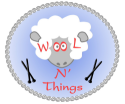Brown forces you to think of things you don't want to admit. His writing takes you places you don't want to visit. As we contemplate difficult situations over and over again, Brown repeatedly does the same. This is honest writing. This is contemplative writing.
Buy it here at Coach House Books.
'Don’t touch it,’ she said. When I didn’t touch it
she said, ‘Go ahead. Touch it.’I touched it.
‘How did it feel?’
‘I don’t know.’
‘You can touch it again,’ she said. ‘Touch it again.’
I went ahead. Pushed through. Used my arms. Used my hands. Squeezed past. Got through. Went on.
Something happened. It felt good.
Can a breakup break you apart?
In Self-Titled, Geoffrey Brown stares into a mirror and writes what he sees, what he thinks, what he feels. The result? A self-portrait that’s at once comic and psychotic, a complex consciousness captured in crystalline prose. Memories, manias, miasmas – Brown morphs the machinery of his mind into an utterly original entity, equal parts diary, criminal confession, sex manual and mash note, as he contemplates a breakup.
The novel splits into two parts; in ‘First,’ our slacker hero analyzes the minutiae of the relationship, trying to understand what he did, why it went wrong, and whether she’ll come back. In ‘Second,’ he knows she’s not coming back, and he gets angry, flagellating himself with a whip of wordplay and remorse.
Self-Titled is a singular achievement with universal appeal: who hasn’t squinted into a mirror and said, ‘What the hell is happening here?’? If Gertrude Stein’s autobiography was Everybody’s Autobiography, then Brown’s self-portrait is everybody’s self-portrait.
Guest edited for the press by Derek McCormack.
‘A clipped, intentionally repetitive textual experiment that evokes the literary equivalent of hypnosis through its calm and measured prose. Obsession expressed through bursts of violence and desire create an elliptical narrative of omission, haste and confusion.’ – Broken Pencil, on Notice
First Published: 2004
.JPG)














No comments:
Post a Comment